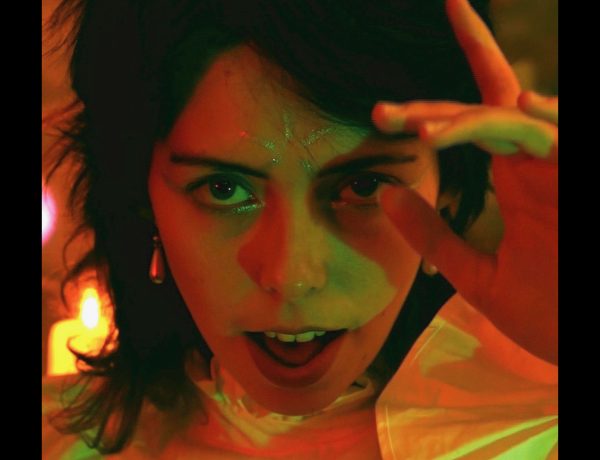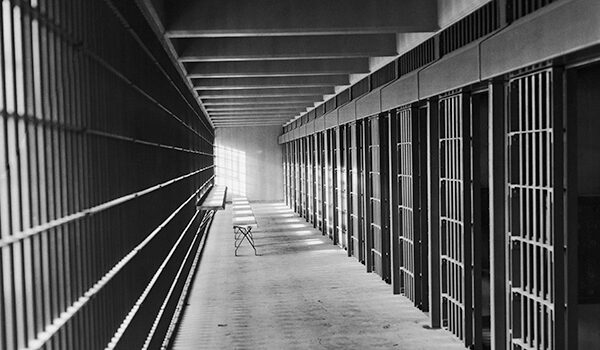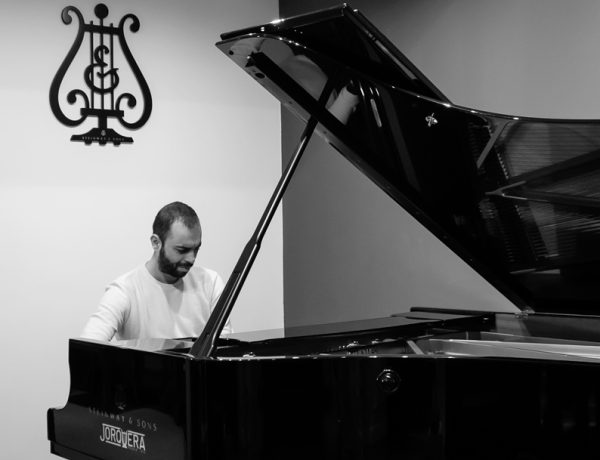Growing up in Germany making movies with his friends, young Falk Hentschel couldn’t even imagine what life would have in store for him. Initially working as a dancer in an attempt to create an indirect route into the film industry, he took one particular rejection as a sign that he needed a career change, immediately dropping dance, moving to LA, and chasing acting. While he now stars as the central villain of Steve Carell’s Welcome to Marwen, the road has been bumpy to say the least. Falk has battled everything from severe depression and psychosis to eating disorders and body dysmorphic disorder. He is now using his experiences to encourage others to seek help. In particular, he’s calling attention to Hollywood’s perpetuation of ludicrously unrealistic body image standards for men. In order to help loved ones who could be struggling, Falk simply suggests that we be kinder and more empathetic to one another – advice that we can certainly all take to heart.
Cliché: You originally started out as a backup dancer. Who or what motivated you to switch to acting?
Falk Hentschel: Before being a dancer, I ran through the woods with my childhood bestie, wielding my parent’s home camera, beating up imaginary thugs (played by my friend’s little brother) and thus gleefully creating our first little movies. I’ve always wanted to make movies, dance was the way that got me there when I couldn’t find a direct route. My back up dance career was what lead me to Los Angeles. Once I arrived in LA, my switch over to acting started. I focused on studying acting the first 3 years while supporting myself through dance and choreography. It was an audition for Justin Timberlake’s FutureSex/LoveShow tour that made me decide to quit dance and act full time. JT was the only artist that was left that I was interested in dancing for. So when I didn’t get the gig, I took it as a sign to go back to my childhood dream of being an actor. I quit dance the next morning.
What do you consider your first big break? How would you describe that experience?
I think that there is no big break. Every job you book is kinda a “big break.” When I booked Knight and Day, my first big feature film, I believed I had gotten my big break. But I barely got paid enough to pay my rent and didn’t book much else the following year. It was quite sobering. Then after that I landed a few guest star roles on TV and then came StreetDance 2. Again I figured “here is my big break,” and again that just wasn’t true. More struggle followed. But I will say that with each job that you get under your belt, there is a huge amount of growth. Your experience and confidence rises and with that people start to treat you with a little more respect. I gave up trying to get my “big break.” Now I focus on doing the best work I can and most of all being as creatively fulfilled and happy as I can be. It’s the only thing I have any influence on any way. Everything else is up to the universe.

Talk about your new film, Welcome to Marwen, and your character, Hauptsturmführer Ludwig Topf.
Welcome to Marwen is an incredible story about courage, authenticity and the power of healing that art and creativity holds. It’s about Mark Hogancamp a victim of a violent assault, who constructs a miniature World War II village, called Marwen, in his yard to help in his recovery. I play the man who assaulted and almost killed him and also the doll nazi Ludwig Topf. Topf represents Mark’s real life attacker in the world of Marwen.
You play the villain of the film. How do you go about empathizing with the antagonist? Alternatively, do you emphasize more with the protagonist and then understand the villain through those emotions?
I always try to find a way to understand and empathize with my character no matter what terrible deed they have committed or how they behave. You can’t judge a character and play him truthfully at the same time, that just doesn’t work for me. So I sit down and try to get into the character’s thoughts and feelings. In this case, I asked myself what could possibly drive me to commit such violence against another human. Usually the answers come down to a lack of love, joy and happiness. When you’re disconnected from those emotions long enough, hate will eventually take its place. Underneath it though, I think lies pain, sadness and torment. For the “Thug” who beat Mark into a coma, I decided that he was jealous of Mark’s courage to be himself, to be authentic. So he needed to put a stop to it. It sounds so simple now but it took me quite a while to get to that place, so I could play the character.
Welcome to Marwen revolves around a man creating a fantasy world as a coping mechanism to deal with his trauma, the aftereffects of which continue to haunt him. What commentary do you think this film has to offer in terms of the power of fantasy and escapism?
I think it will emphasize how powerful our minds are and how much healing lies in our thoughts and imagination. But how you also need to find a healthy balance between our fantasies and reality and how both influence one another.

You’re incredibly open about your own struggle with depression. When did you first identify your symptoms? What are some healthy coping mechanisms you use to get through bad days?
Before my career really got started, in my mid twenties, I went through an almost three months long psychosis. I basically smoked some pot that was either laced or just too potent and “pop” I lost my mind. I had no idea who my parents were, who I was or what was real and what was not. The real root of it, which I discovered much later through meditation and the help of amazing healers, was not the drugs themselves, but the fact that I had been depressed for almost 5 years straight leading up to this psychosis. I think my body couldn’t handle the constant state of being unhappy anymore. So after that I knew that I need to watch out and really tend to my emotions. When I start to question the goodness of life I have to be vigilant to remind myself of the fact that everything is and always will be ok in the long run.
I use nature quite a bit to balance myself out. I live in Oregon, so it’s easy for me to go out into the woods, find a stream or river to listen to and to just sink into the current moment. Usually just being present holds a lot of healing. It is in the contemplation of the future and past that I come across most triggers that can send me into a depression.
Do you have advice for anyone out there who might be struggling with depression?
Stay present in the world around you. Don’t lock yourself up in your mind surrounded by only your thoughts.
Create a support system for yourself. It can be in the form of loved ones that you can call upon to just be there for you or hobbies, rituals that keep you grounded and in the moment. For me it’s nature, for you it might be an art gallery, a book or a home cooked meal. Anything that reminds you of how much wonder and joy the current moment can hold. Another thing that helps me quite a bit is to find a friend who is willing to just listen, when you share your feelings and struggles. So often I hear “Yeah I totally understand, I often feel the same.” and I’m reminded that I’m not alone in this. I think these days probably every single human has dealt with some form of depression whether they know it or not. You are not alone, I’m right here with you.
In your opinion, how can society alter the way we think and talk about mental illness so that those affected can feel less alone or be encouraged to seek help?
Oh man, that’s a big question. For me personally, here is what I know helped me and what got me through. I was fortunate enough to have a family who loved me so much that they really listened to me, no matter how little sense I made. They cared for me no matter how hard it was. They loved me and treated me as Falk, who isn’t feeling well, not as a crazy person whose mind is lost. It made me feel safe enough to calm down, to restructure and to return to my old and yet new state of mental wellness.
Let’s not make it a “them” and a “us,” like we unfortunately seem to be doing a lot right now. Having lost my own mind and remembering how quickly it can happen, I know that mental illness could affect any of us. Let’s care for one another. Let’s realize that a person suffering from mental illness is just someone who is not feeling well. One of us who is not feeling well. As corny as it sounds but let’s open our arms and hearts and take the time to listen.

You’ve also battled eating disorders as well as body dysmorphic disorder, which are conditions stereotypically associated with women. Did you initially feel isolated as a man with these disorders? What would you say to other men grappling with body image issues?
I had no idea I was even suffering from an eating disorder until I found myself at an OA meeting in order to help a friend that was anorexic and bulimic. I was the only guy there and I listened to everyone sharing and suddenly realized “oh wait a minute, I have an eating disorder and body dysmorphia.”
At first I did feel alone. In my case my disorders manifested in excessively working out, past the point of it being healthy, controlling my food intake obsessively and basically arranging my whole life around my body image. But I very quickly realized that especially in Los Angeles, a lot of men suffer from some form of an eating disorder or body dysmorphia. I mean take a look around – I feel like every man no matter what their job is or lifestyle is, is trying to look like a superhero. Our society has created an ideal body image that is absolutely outlandish. And our culture reinforces that you have to fit into that body image or you’re not a success, you won’t be loved by women and admired by other men. You’ll be less than.
So I say to everyone struggling the way I have, free yourself of the standards set by the entertainment industry and live a life conducive to your happiness and physical health and NOT the way you look. I have made a point to be active but in a way my body can enjoy it. I now do it to feel good and healthy, not to gain another ab or put on pounds of muscle. Variety is beautiful. Your body is beautiful because it’s unique. Surround yourself with people that love you for your uniqueness, don’t strive to be like everyone else. And know this: I’ve played a superhero, society’s current ideal of masculinity. The truth is, inside I felt insecure and nowhere near good enough. I never saw my body for what it was. I only saw how much further i needed to go. Never satisfied, never happy. An endless cycle. It’s not the ideal that we sell it to be.
Expectations around male body image are seldom acknowledged, let alone addressed as a problem comparable to the expectations placed on girls and women. What can we do to further raise awareness of unrealistic male body image presented by the media and help boys and men feel confident and secure in their bodies?
Show those boys that they are loved above all. Build up their confidence in who they are as a person. Teach them the values of kindness, honesty and truth rather than power, riches and control. Most of all give them a larger variety of role models to draw from. I believe that we don’t currently have any realistic “male” characters out there to look up to. To be a complete and well rounded “man” is to embrace once masculinity and femininity equally. We have glorified the masculine aspect of our “hero” figures so much that the feminine has withered away. Let’s teach men about their femininity again. As a matter of fact lets all of us, man and women realize that, yes we have different sexual organs and physical make up, but who we truly are is made up of equal part feminine and masculine energy. We are one and the same in our essence.
If we stopped surprising half of who we are, we could start all kinds of healing. Not just the issue of “body image.”

How can love ones better support someone with a mental illness or eating disorder?
By being non judgmental. By truly listening to them. By acknowledging that it is a real problem and not some vain curiosity of the mind. By being interested. When someone is truly interested in someone’s plight it takes away any feeling of being judged and somehow builds trust to share truthfully. Care and Love is always the answer in my mind. Ultimately we always have to battle our demons ourselves but a caring and loving support system will give you the strength and inspiration to do so.
And don’t try to do it all by yourself. It’s too big of a beast for any loved one to handle. Go to an OA meeting, help and encourage them to find professional support. You don’t have to do it all by yourself.
What would be your dream role?
There are four movies that till today elicit a huge emotional response from me. Braveheart, Forrest Gump, The Professional (the uncut European version) and Legends Of the Fall. All of them had heroes that faced tremendous physical and emotional challenges but they all showed a vulnerability you don’t see in heroes anymore. All of them were not afraid to show that they were scared. All of them were flawed and all of them were courageous enough to cry.
I guess what I search for in the dream role is a chance to portray a complex human being rather than a Hollywood stereotype. The Europeans are really great at that cause they don’t have the money to blow up the planet and save everyone, so they have to resort to relatable characters with interesting dynamics. I loved Vinterberg’s The Hunt – Mads was incredible in that. A regular man having to deal with such a huge conflict. A role like that – wow what a gift.
Read more Celebrity Interviews on ClicheMag.com
“Welcome to Marwen” Star Falk Hentschel Gets Real About Mental Health. Photo Credit: MAARTEN DEBOER.




